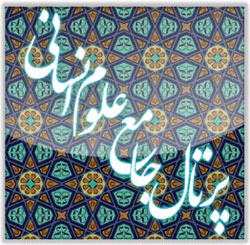Exploring the Discourse of Justice in Nizam al-Mulk's Siyasatnama and Its Influence on Iranian Political Thought
Keywords:
Justice, Nizam al-Mulk, Siyasatnama, Discourse Analysis, Iranian Political Thought, Kingship, Legitimacy, PowerAbstract
This article explores the discourse of justice in Siyasatnama by Nizam al-Mulk and examines its influence on the trajectory of Iranian political thought. Employing a historical-critical discourse analysis framework and drawing on the theories of Fairclough, Laclau, and Mouffe, the study analyzes justice not as an abstract moral value, but as a discursive and ideological construct embedded within the language of the text. Findings indicate that Nizam al-Mulk formulates justice through its close association with concepts such as kingship, sharia, rationality, and bureaucratic order, positioning it as a fundamental mechanism for legitimizing royal authority and maintaining political stability. Although the justice presented appears ethical and religious, it primarily functions as a tool to reinforce hierarchical authority. The article further demonstrates how this discourse was reproduced and institutionalized in later centuries, notably in the works of Ghazzali, Qabus-Nama, and within the political ideologies of the Safavid and Qajar dynasties. While constitutionalists and modernist thinkers of the 20th century critiqued this model, certain aspects of the classical justice discourse have remained influential in contemporary Iranian political language. Ultimately, the article presents Siyasatnama as not merely a historical treatise but as a living discursive legacy that continues to shape the conceptual relationship between justice and authority in Iranian political culture.
Downloads
References
Althusser, L. (2001). Lenin and Philosophy and Other Essays. New York: Monthly Review Press.
Arjomand, S. A. (1984). The Shadow of God and the Hidden Imam: Religion, Political Order, and Societal Change in Shi'ite Iran from the Beginning to 1890. Chicago: University of Chicago Press.
Foucault, M. (1980). Power/Knowledge: Selected Interviews and Other Writings, 1972–1977. New York: Pantheon.
Lambton, A. K. S. (1980). State and Government in Medieval Islam: An Introduction to the Study of Islamic Political Theory: The Jurists. Oxford: Oxford University Press.
Madelung, W. (1997). The Succession to Muhammad: A Study of the Early Caliphate. Cambridge: Cambridge University Press.
Nasr, S. H. (2006). Islamic Science: An Illustrated Study. Chicago: World Wisdom, Inc.









